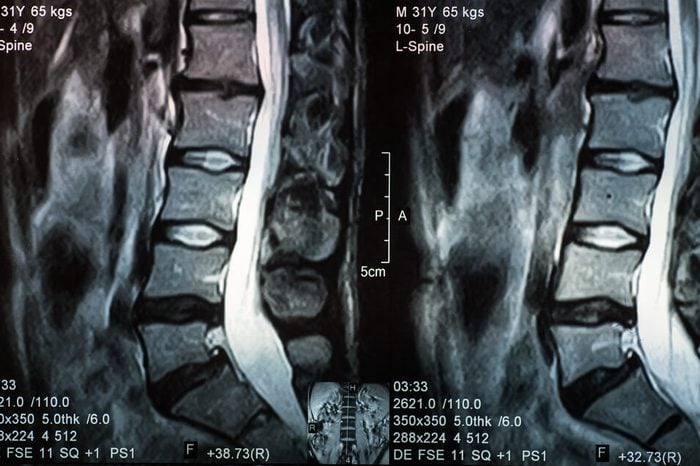
What is a herniated disc?
From too-high heels to poor nutrition, your back can start aching for any number of reasons. Sometimes, when the shock-absorbing discs in your vertebrae herniate or rupture, their gel-like center can press up against and irritate surrounding nerves. The result? You may feel significant pain. However, that’s not a guarantee—many people don’t have any symptoms, or their herniated disc symptoms could be masquerading as something else.
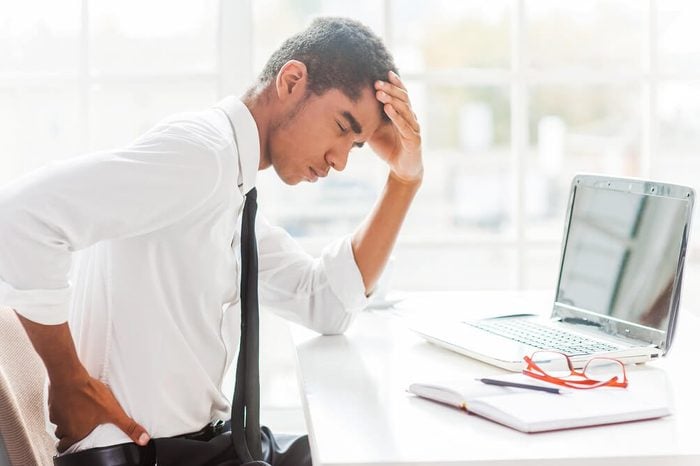
Why do you have a herniated disc?
Blame the rigours of everyday life. As you age, the fluid in these discs begins to leak out, and they’re prone to damage. As many as 5 per cent of people will be saddled with this condition, and it’s more common in men and people over age 30. The following herniated disc symptoms could help you pinpoint the source of your pain.
Check out the true story of how this teacher’s back pain turned out to be a life-threatening condition.
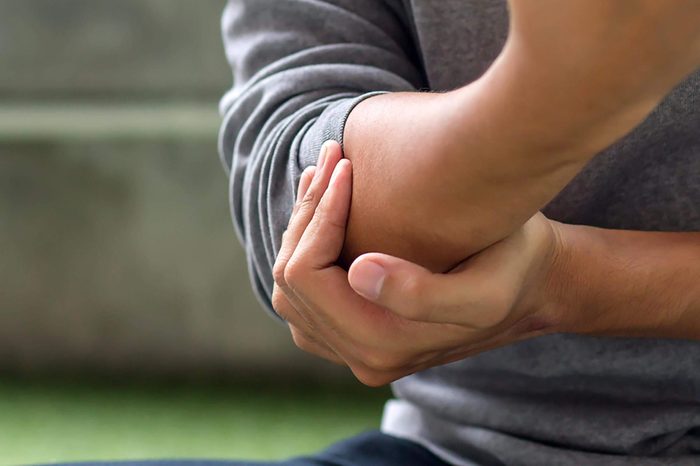
1. Your arm (or leg) hurts
Because the disc can slip anywhere along the length of your spine, pain may affect other parts of your body—not just your back. “Depending on where the slipped disc is, you may get symptoms in your arm, along your trunk, or in your leg,” says Irene Tien, MD, an emergency medicine physician with the Rowe Telemedicine Network. While various body pains aren’t the only herniated disc symptoms, they are the most common.
Suffering from an aching shoulder? Check out these possible medical reasons for shoulder pain.
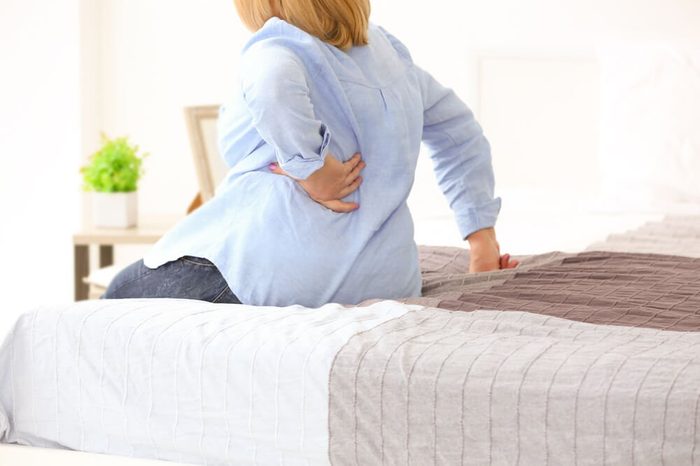
2. One side of your body is cold
Think you injured your upper back and possibly herniated a disc? When nerves are irritated, the symptoms may not show up as expected. In fact, it may come across as “burning, numbness, aching pain, or a strange sensation—such as coldness along the trunk of your body, usually on one side,” Dr. Tien describes.
You won’t believe the strange reason this Parkinson’s patient’s leg pain wouldn’t go away.
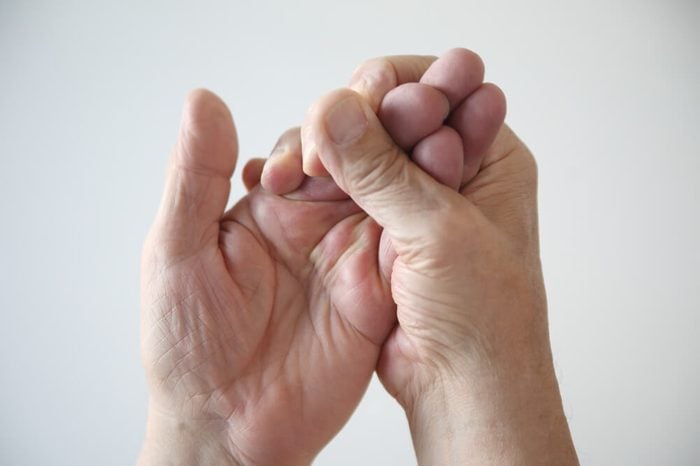
3. Your hands are numb
Herniated disc symptoms don’t just include pain. Because the slipped disc is affecting the nerves in your spinal column, it can affect any number of ways messages are transmitted and perceived by the brain. The area where your herniated disc symptoms appear may provide a clue where the problem lies in your spine. For instance: Having issues typing? Hand numbness is a sign that your cervical spine (located in your neck) is the source of trouble, says Dr. Tien. “The nerves that give you sensation in your hands originate higher up in your spinal cord,” she adds. Here are more surprising diseases your hands might predict.
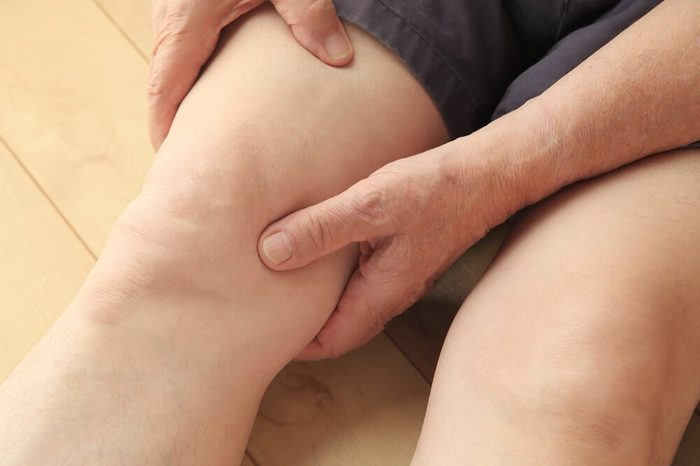
4. Leg weakness
Slipped disc symptoms may also target your legs. “The nerve tracts that run within the spinal cord in the neck continue to the legs, which is why severe compression of the spinal cord can affect your legs, causing weakness or imbalances,” says Kaliq Chang, MD, an interventional pain management specialist at the Atlantic Spine Center in West Orange, New Jersey.
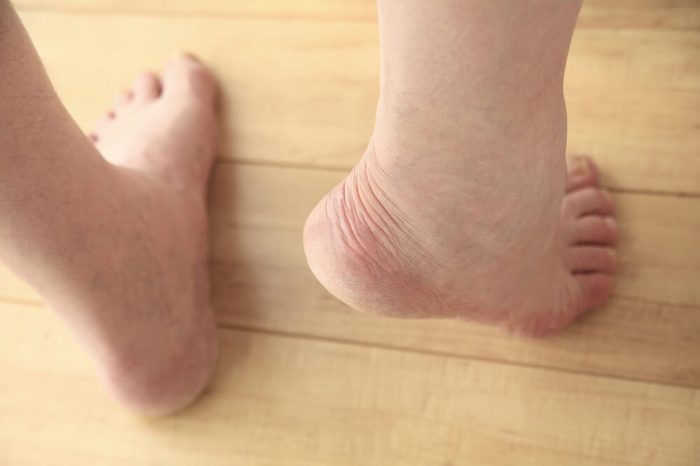
5. Foot pain
If a herniated disc in your lower back presses on your sciatic nerve, there’s a risk of developing a condition called sciatica. Along with pain that can shoot through your leg, you may also lose feeling in your feet or toes, according to the Cleveland Clinic. Here are six proven ways to soothe foot pain.
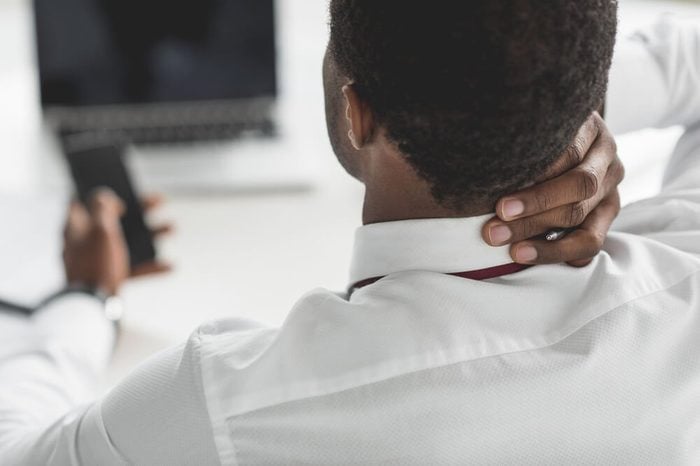
6. It hurts to watch a funny show
Laughter is supposed to be the best medicine—unless your back is involved. Coughing, laughing, or sneezing puts pressure on your abdomen, which can reverberate to your back, says Leda Ghannad, MD, assistant professor of orthopedic surgery and physical medicine and rehabilitation at Rush University Medical Center. Painful laughter, coughing, and sneezing are some of the herniated disc symptoms you need to watch out for. You won’t believe these weird things make people sneeze!
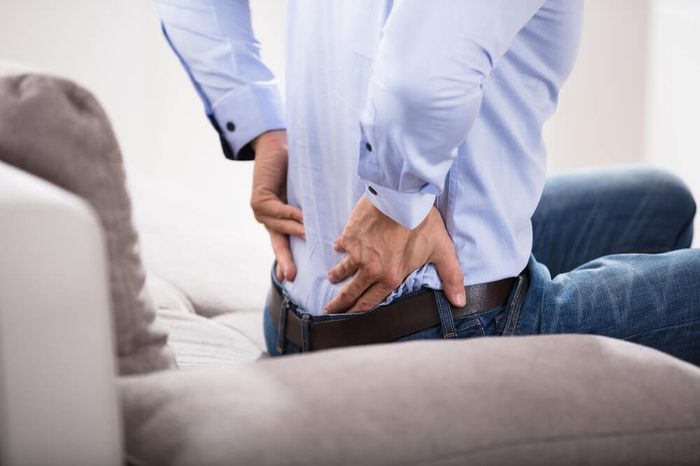
7. Pain gets worse when you rest
You might expect that lifting something heavy will hurt like crazy if you have a herniated disc. But sitting down to rest should be fine, right? Wrong: Pain while sitting—or bending forward—are common herniated disc symptoms, says Dr. Ghannad. You might consider trying these exercises to relieve back pain.
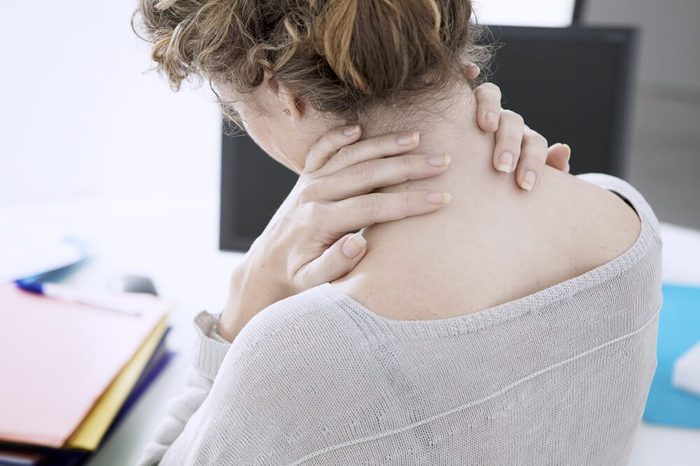
Healing on your own is possible
Despite the pain and discomfort, the good news is you’ll likely heal on your own. In fact, 90 out of 100 people report that back pain and herniated disc symptoms disappear within six weeks, according to the U.S. National Library of Medicine. One reason? Your body may remove the tissue that’s pressing on nerves on its own. Talk to your general practitioner to see if your herniated disc symptoms are serious enough to monitor. These 10 tips can help relieve back pain, too.
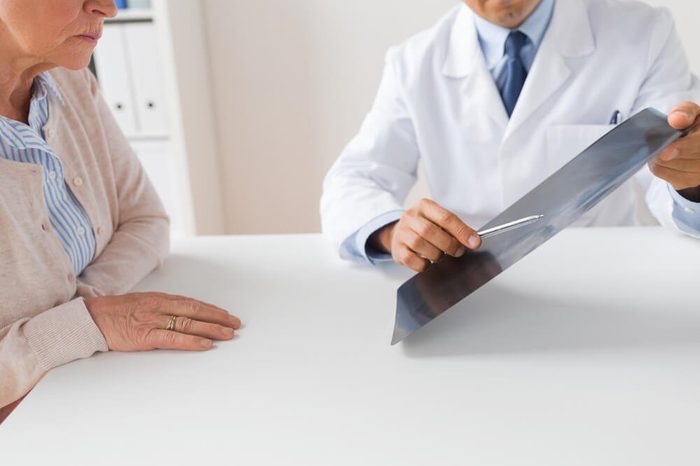
Do you need surgery for a slipped disc?
You probably don’t need to visit a spinal surgeon to fix your problem. One study in BMJ Open found that after three months, patients with a lumbar disc herniation who received surgery or “conservative” treatments like physical therapy and painkillers felt equally better. The conclusion: Surgery may only be necessary if those conservative treatments don’t work for you, or your back pain is so debilitating that you need rapid relief. Believe it or not, recent research has shown that yoga can be highly effective at treating back pain.
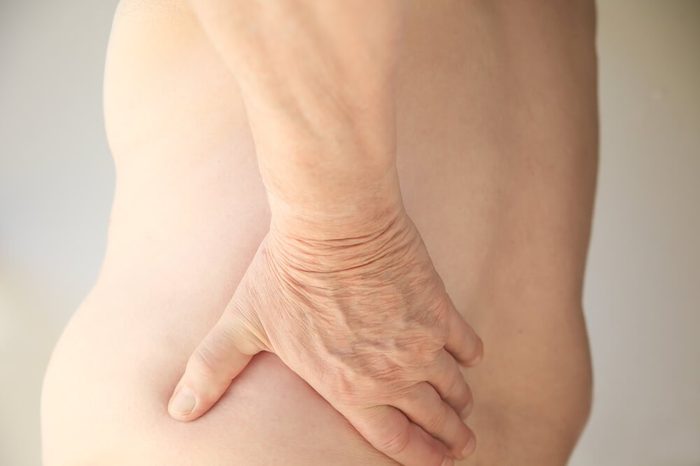
When a slipped disc is an emergency
Most of the time, a slipped disc is not an emergency. However, rarely the condition can trigger something called cauda equina syndrome: The disc compresses a group of nerves in the lower spine and unless you get emergency surgery, you could be at risk for incontinence. Call your doctor right away if pain and weakness impair your ability to function normally, if you experience incontinence or bowel problems, or if you have numbness in the inner thighs and backs of legs, recommends the Mayo Clinic. These symptoms would suggest your herniated disc could be more serious than usual. Check out more strange symptoms that can signal a serious disease.

Could it be something else?
Even if you’re sure you injured your back, you could be feeling pain from something else, such as a kidney infection, a kidney stone, a gastric ulcer, or acid reflux, Dr. Tien points out. If your back pain is accompanied by other symptoms, like a burning in your chest or difficulty swallowing (as with acid reflux) or nausea or vomiting (kidney stone symptoms), see your doctor, as these are not herniated disc symptoms, and could mean something more serious for you. Learn to spot kidney infection warning signs.

How to prevent a slipped disc
While aging makes you more prone to the problem, it doesn’t mean it’s inevitable. Smart lifestyle habits can protect your back, like exercising, maintaining a healthy weight, and using proper lifting technique—keeping your back straight and upright as you lift from your legs. Prevention is often so much easier than treatment after the fact, both for a herniated disc and for other serious health conditions. Don’t miss these proven weight loss tips from TV’s The Biggest Loser.

Finally, quit smoking
Lighting up doesn’t just affect your lungs and heart. Your spinal health is another reason to kick the habit. (Here are 23 brilliant ways to stop.) A study by Emory University researchers found that smoking can speed up damage to discs by impairing the function of blood vessels that provide nutrients to this area. It’s one change that can help keep your back feeling good. Next, check out eight more reasons you have back pain.